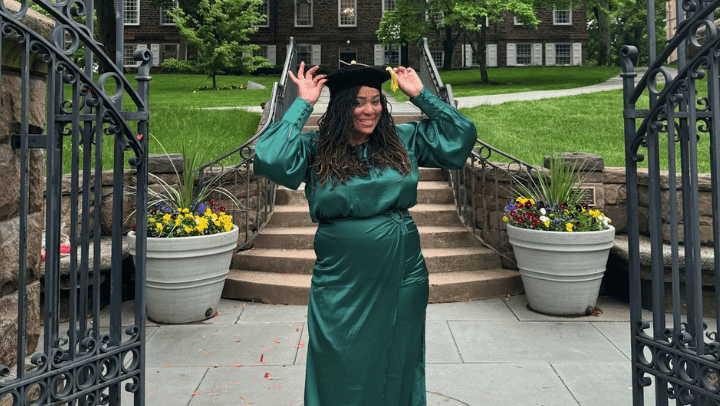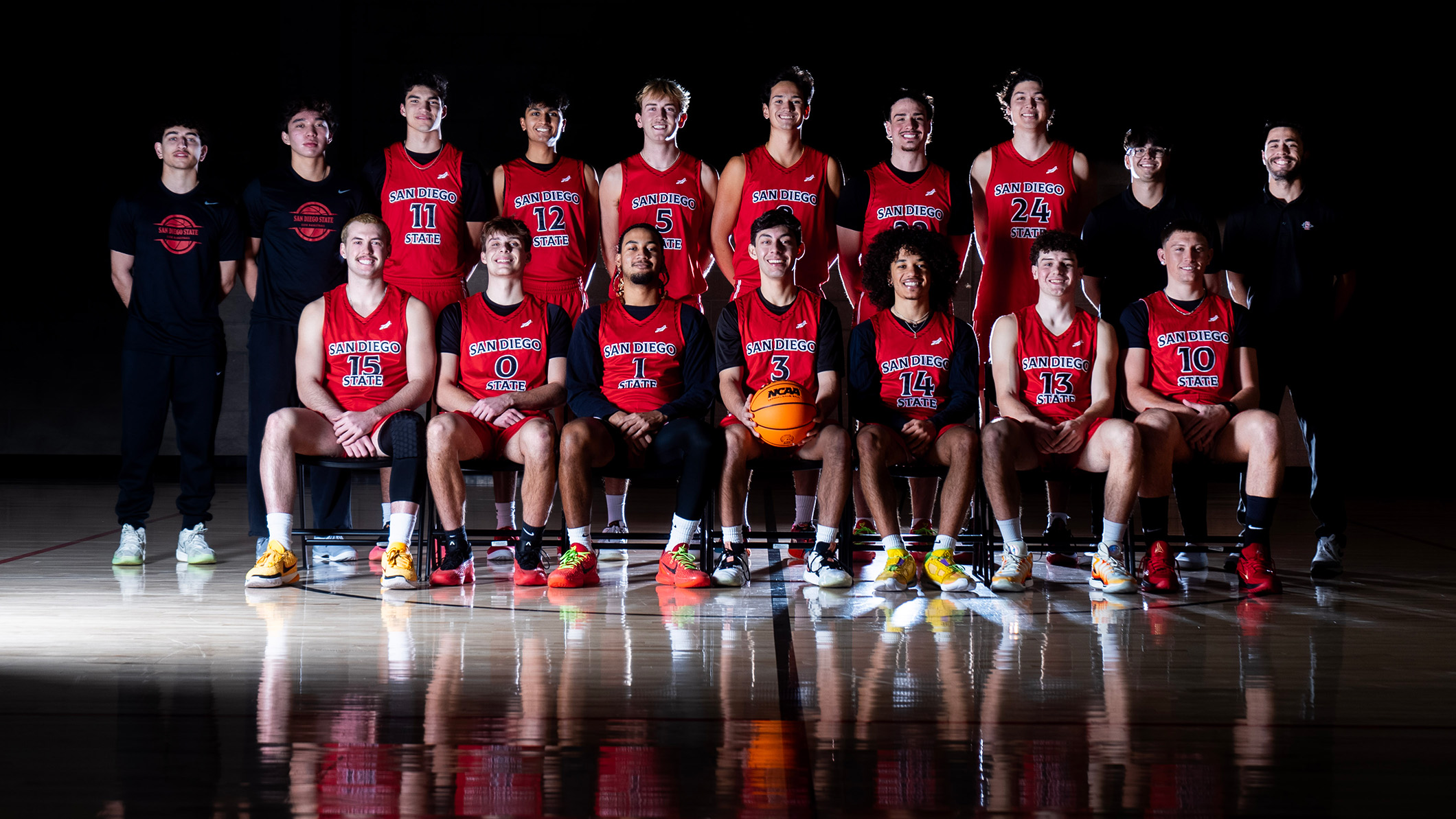Breaking down systemic barriers to mathematics success
Bolstered by a new fellowship, STE’s Brittany L. Marshall aims to disrupt conventional math wisdom that creates biases and harms students.

Brittany L. Marshall's passion for math goes deeper than mere numbers. The former architect, classroom teacher and newly minted academic is inspired to disrupt traditional mathematics logics — the harmful yet persistent assumptions educators make that serve to exclude certain students from participating in math.
One example: Math is individual and based around competition.
"I disagree," she explains. "Math is a human activity, therefore it should be done together. The whole point of it is to make meaning and to explain our world. Why wouldn't we do that as a community?"
Now in her second semester as an assistant professor of mathematics education at San Diego State University, Marshall still craves community. She’s found it in the School of Teacher Education, which has had a long tradition of math educators eager to buck convention.
And she’s now found it outside of the university, as well.
In January, Marshall was notified of her acceptance into the Service Teaching and Research (STaR) program. Offered by the Association of Mathematics Teacher Educators (AMTE), STaR supports the development of early career mathematics educators through mentorship and networking with math education experts across the country. As part of the experience, she will take part in a weeklong summer institute in June in Park City, Utah.
In addition to learning from experienced mentors, Marshall is excited to make connections with fellow early-career faculty from around the country who may one day become professional collaborators.
"I don’t think we get better in silos,” she said. “I think this will just open up what I can learn and what I can teach my students. I'm just such a student of math education — I love it just as much as the actual math.”
Disrupting traditional logics
The power of mathematics education, Marshall said, is that it can show young people that they are capable of doing something society has deemed very difficult. It instills self-confidence. Yet with the wrong teacher, that confidence can be easily stamped out.
Mathematics changed Marshall’s life for the better, but only after overcoming systemic barriers created by those same traditional mathematics logics she now seeks to dismantle. One of the biggest myths?
Math ability is innate.
“I just had this conversation with my pre-service teachers in elementary math methods,” Marshall said. “I told them ‘If you believe that math ability is innate, you're in the wrong place.’ That means you're walking in with biases. You're going to think some of these students can't do it anyway, so what's the point of you teaching them? In fact, you're a detriment.”
Those biases have often fallen along racial and gender lines — something Marshall knows because she’s lived it.
Raised in a de facto segregated Black community on the South Side of Chicago, Marshall went from graduating seventh in her class, at a high school that did little to prepare her for college, to being on academic probation as a first-year architecture student. She vividly remembers professors telling her she wouldn’t achieve her dream of becoming an architect because she wouldn’t be able to handle the math.
“Being on academic probation completely changed my math identity and way I saw things," she recalled.
Unbowed, Marshall worked herself off probation and went on to earn her master’s, later working as an architect in Chicago, then Washington, D.C. She was ultimately laid off during a 2008 financial crisis, but that bit of bad luck opened the door to a new opportunity.
She decided to return home to Chicago to become a teacher, which she did for eight years at the elementary and high school levels. In her first year in the classroom, her instructional coach told her something that got her thinking: “You light up when you teach math.”
“I remembered loving it as a little kid,” Marshall recalls. “Then things got hard and that love went away."
Believing in students
That nagging question of why she had fallen out of love with math lingered, and eventually spurred her desire to explore what went wrong. She entered a Ph.D. program at Rutgers University, where her dissertation focused on teachers who successfully built positive math identity among children from what she terms “intentionally neglected communities.”
In the course of her research, something a fellow Black math educator told her helped her connect the dots.
“She said, ‘Students may not remember everything you taught them, but they will remember how you made them feel.’” Marshall said. “I keep thinking about that. I really think if you truly believe in students — in their abilities and in their funds of knowledge that they come into your classroom with — then that starts to disrupt everything. If you truly believe that your students can do something, then everything else will come.”
It’s a message she loves to convey to her math methods students and the teacher candidates in the La Mesa-Spring Valley cohort, which she now supervises. Apparently, she’s getting through to them.
“At the start of the semester, some (credential candidates) had been pretty quick to say what their students couldn’t do,” Marshall said. “By the end of the semester, they were starting to talk about what they could do. It's really quite lovely."



